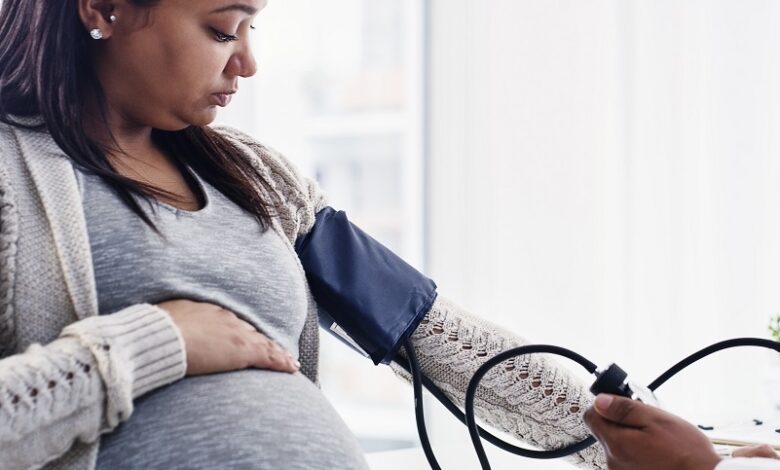What Preeclampsia Means for Your Pregnancy

Preeclampsia is a serious and fairly common complication in pregnancy, affecting up to 8 percent of all pregnancies worldwide, according to the National Institutes of Health. If left untreated, it can pose significant risks for both the mother and baby.
“When not treated, preeclampsia can lead to eclampsia, which is characterized by seizures and can be life-threatening,” says obstetrician-gynecologist, Todd Liu, M.D. “That’s why it’s important to attend all scheduled prenatal appointments and to report any symptoms or concerns to your doctor.”
What Does Preeclampsia Mean?
Pre-eclampsia is caused by changes in the placenta that can lead to high blood pressure and protein in the urine. This condition usually affects women starting around the second half of pregnancy, around 20 weeks, or soon after a baby is delivered.
Signs of preeclampsia include:
- High blood pressure
- Protein in urine
- Sudden weight gain
- Severe headaches
- Vision changes such as blurriness or sensitivity to light
- Right, upper abdominal pain, nausea or vomiting
- Shortness of breath
“It’s important to note that not all women with pre-eclampsia will experience all of these symptoms, and some women may not have any symptoms at all,” Dr. Liu says. “But if you see any of these signs, contact your doctor, who may recommend monitoring or testing to determine if you have preeclampsia.”
If preeclampsia develops into eclampsia, when a person develops seizures in pregnancy, these seizures can potentially lead to stroke or even death. “But it’s important to note that eclampsia affects only a small percentage of women with pre-eclampsia,” Dr. Liu says. “If a woman with preeclampsia is receiving the proper medical care, her risks are greatly reduced.”
How Is Preeclampsia Treated?
If you are diagnosed with preeclampsia, your doctor will work with you to develop a treatment plan to manage your symptoms and reduce the risk of complications for you and your baby.
Treatment may include:
- Monitoring blood pressure
- Changing activity level
- Taking medications to lower blood pressure or prevent seizures
- Delivering the baby prematurely if necessary
“Women with pre-eclampsia may or may not have to stay in the hospital depending on the severity of their condition,” says Dr. Liu. “Mild cases of preeclampsia may be managed at home with regular monitoring of blood pressure and urine protein levels. But if the condition worsens or if there are signs of complications, your doctor may recommend hospitalization.”
Who Is at Risk of Pre-eclampsia?
Factors that may put a pregnant woman at greater risk of developing preeclampsia include:
- Advanced maternal age
- Carrying multiples
- Pre-eclampsia in previous pregnancies
- High blood pressure before becoming pregnant
- Underlying conditions such as diabetes, kidney disease and autoimmune disorders
Dr. Liu offers five tips for women to decrease their risk of pre-eclampsia:
- Follow a healthy diet and exercise regularly during pregnancy
- Achieve a healthy weight before becoming pregnant
- Take prenatal vitamins that contain folic acid prior to getting pregnant
- Avoid cigarette smoking, alcohol and illegal drugs during pregnancy
- Attend all scheduled prenatal appointments with your doctor
